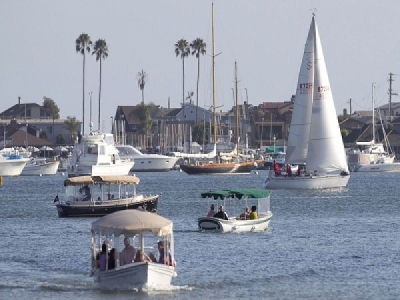
Posted on April 16, 2018
By Hillary Davis, Los Angeles Times
California Coastal Commission staff is showing early disapproval of Newport Beach’s proposal to put control of certain in-water development permits in the city’s hands.
In a roundup of bill analyses in commission Executive Director John Ainsworth’s legislative report for the commission’s meeting this week, staff recommends the commission oppose a bill in the state Legislature that would give Newport official “port” status, a requirement before it can request a port master plan.
With the plan, the city could issue state-sanctioned permits for in-water harbor projects such as small dredging work and private pier repair — much like it handles development on land close to shore through its commission-granted local coastal program, which went into effect last year.
According to the report from Ainsworth and commission Legislative Director Sarah Christie, a port plan “would remove Newport Harbor from the Coastal Commission’s original permit jurisdiction and set a precedent for other coastal municipalities to seek similar authority, thereby diminishing the state’s oversight of activities directly affecting the state’s public trust resources.”
The Legislature would have to amend the California Coastal Act to include Newport Harbor alongside the commercial port districts of Hueneme, Long Beach, Los Angeles and San Diego — well-established transportation and industrial hubs with their own governing bodies. Newport Beach officials have said the “port” label would be semantics and that Newport would not be home to cargo or cruise ships.
Don Schmitz, the lobbyist the city has assigned to the commission, told the City Council at its March 27 meeting that he was promoting “a good government bill” that would cut down on “busy work” for state staff. It also would shorten the permitting process, which currently takes months.
The bill, sponsored by Assemblyman Matthew Harper (R-Huntington Beach), has until Aug. 31 to clear both houses of the Legislature if it is to pass this legislative session.
But a closing paragraph from the commission bill analysis makes the commission’s backing seem unlikely.
“Coastal Commission oversight of waterfront areas is particularly critical due to the heightened implications for public access, coastal recreation and lower-cost visitor-serving facilities, protection of important biological resources, placement of fill in state waters and disposal of vital dredge spoils,” the report reads.
Source: Los Angeles Times





